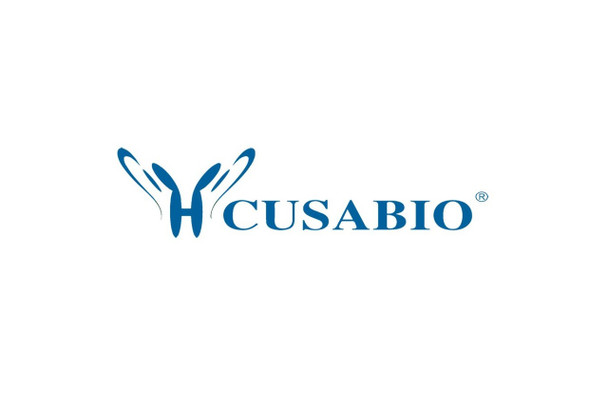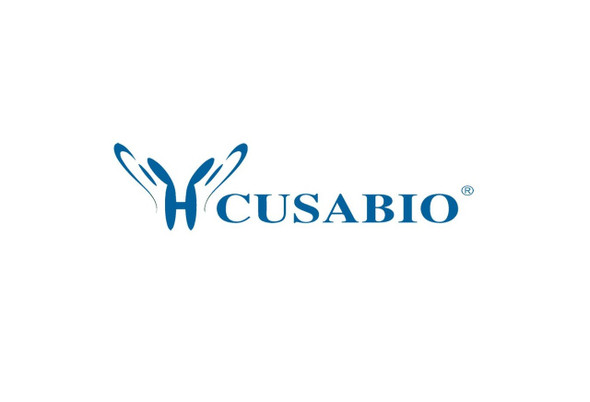Cusabio Human Recombinants
Recombinant Human Meteorin-like protein (METRNL) | CSB-MP731035HU
- SKU:
- CSB-MP731035HU
- Availability:
- 18 - 28 Working Days
Description
Recombinant Human Meteorin-like protein (METRNL) | CSB-MP731035HU | Cusabio
Alternative Name(s): Subfatin
Gene Names: METRNL
Research Areas: Cell Biology
Organism: Homo sapiens (Human)
AA Sequence: QYSSDRCSWKGSGLTHEAHRKEVEQVYLRCAAGAVEWMYPTGALIVNLRPNTFSPARHLTVCIRSFTDSSGANIYLEKTGELRLLVPDGDGRPGRVQCFGLEQGGLFVEATPQQDIGRRTTGFQYELVRRHRASDLHELSAPCRPCSDTEVLLAVCTSDFAVRGSIQQVTHEPERQDSAIHLRVSRLYRQKSRVFEPVPEGDGHWQGRVRTLLECGVRPGHGDFLFTGHMHFGEARLGCAPRFKDFQRMYRDAQERGLNPCEVGTD
Source: Mammalian cell
Tag Info: N-terminal 6xHis-tagged
Expression Region: 46-311aa
Sequence Info: Full Length of Mature Protein
MW: 34 kDa
Purity: Greater than 90% as determined by SDS-PAGE.
Relevance: Hormone induced following exercise or cold exposure that promotes energy expenditure. Induced either in the skeletal muscle after exercise or in adipose tissue following cold exposure and is present in the circulation. Able to stimulate energy expenditure associated with the browning of the white fat depots and improves glucose tolerance. Does not promote an increase in a thermogenic gene program via direct action on adipocytes, but acts by stimulating several immune cell subtypes to enter the adipose tissue and activate their prothermogenic actions. Stimulates an eosinophil-dependent increase in IL4 expression and promotes alternative activation of adipose tissue macrophages, which are required for the increased expression of the thermogenic and anti-inflammatory gene programs in fat. Required for some cold-induced thermogenic responses, suggesting a role in metabolic adaptations to cold tperatures .
Reference: Meteorin-like is a hormone that regulates immune-adipose interactions to increase beige fat thermogenesis.Rao R.R., Long J.Z., White J.P., Svensson K.J., Lou J., Lokurkar I., Jedrychowski M.P., Ruas J.L., Wrann C.D., Lo J.C., Camera D.M., Lachey J., Gygi S., Seehra J., Hawley J.A., Spiegelman B.M.Cell 157:1279-1291(2014)
Storage: The shelf life is related to many factors, storage state, buffer ingredients, storage temperature and the stability of the protein itself. Generally, the shelf life of liquid form is 6 months at -20?/-80?. The shelf life of lyophilized form is 12 months at -20?/-80?.
Notes: Repeated freezing and thawing is not recommended. Store working aliquots at 4? for up to one week.
Function: Hormone induced following exercise or cold exposure that promotes energy expenditure. Induced either in the skeletal muscle after exercise or in adipose tissue following cold exposure and is present in the circulation. Able to stimulate energy expenditure associated with the browning of the white fat depots and improves glucose tolerance. Does not promote an increase in a thermogenic gene program via direct action on adipocytes, but acts by stimulating several immune cell subtypes to enter the adipose tissue and activate their prothermogenic actions. Stimulates an eosinophil-dependent increase in IL4 expression and promotes alternative activation of adipose tissue macrophages, which are required for the increased expression of the thermogenic and anti-inflammatory gene programs in fat. Required for some cold-induced thermogenic responses, suggesting a role in metabolic adaptations to cold temperatures (By similarity).
Involvement in disease:
Subcellular Location: Secreted
Protein Families: Meteorin family
Tissue Specificity: Highly expressed in the skeletal muscle, in subcutaneous adipose tissue, epididymal white adipose tissue depots and heart. Also expressed in brown adipose tissues and kidney.
Paythway:
Form: Liquid or Lyophilized powder
Buffer: If the delivery form is liquid, the default storage buffer is Tris/PBS-based buffer, 5%-50% glycerol. If the delivery form is lyophilized powder, the buffer before lyophilization is Tris/PBS-based buffer, 6% Trehalose, pH 8.0.
Reconstitution: We recommend that this vial be briefly centrifuged prior to opening to bring the contents to the bottom. Please reconstitute protein in deionized sterile water to a concentration of 0.1-1.0 mg/mL.We recommend to add 5-50% of glycerol (final concentration) and aliquot for long-term storage at -20?/-80?. Our default final concentration of glycerol is 50%. Customers could use it as reference.
Uniprot ID: Q641Q3
HGNC Database Link: HGNC
UniGene Database Link: UniGene
KEGG Database Link: KEGG
STRING Database Link: STRING
OMIM Database Link: OMIM









